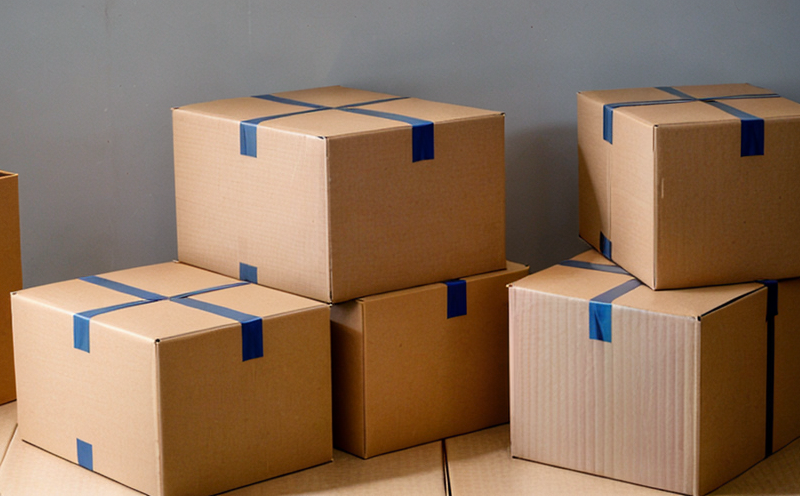USP NIAS Profiling in Biocompatible Packaging
The US Pharmacopeia (USP) [1] Next-Generation Analytical Instrumentation (NIAS) Profiling is a critical component of ensuring the safety and compatibility of biocompatible packaging materials used in pharmaceutical, medical device, and food & feed industries. This service focuses on identifying potential leachables from packaging systems that could migrate into contact materials or directly to the product.
In biocompatible packaging applications, such as drug delivery devices, medical implants, and sterile barrier systems, even trace amounts of leachable substances can pose significant risks if they are not properly identified and controlled. USP is designed to help manufacturers identify potential contaminants early in the development process through advanced analytical techniques that go beyond traditional methods.
The NIAS Profiling technique involves the use of sophisticated instrumentation capable of detecting extremely low concentrations of organic compounds, metals, and other potentially harmful substances that may leach from packaging materials into direct contact articles. This service is particularly valuable for ensuring compliance with international standards such as ISO 10993-25 [2] and IEC 60601-1:2018 [3].
The process begins with thorough specimen preparation, which involves selecting representative samples of the packaging material. These specimens are then subjected to a series of rigorous analytical procedures using state-of-the-art equipment like high-resolution mass spectrometers and liquid chromatography coupled with tandem mass spectrometry (LC/MS/MS).
During analysis, various solvents are used to extract potential leachables from the packaging material. This step is crucial as it ensures that all possible contaminants are brought into solution for further examination. After extraction, the extracts undergo purification processes tailored to isolate specific classes of compounds.
The purified extracts are then analyzed using NIAS Profiling techniques, which involve multiple runs on different detectors and chromatographic columns. This multi-faceted approach allows for comprehensive coverage of potential leachables, ensuring no critical compound is overlooked. The resulting data provides detailed profiles of the extracted substances, including their molecular weights, structures, and relative concentrations.
Once analyzed, the results are interpreted by our team of experts who generate detailed reports outlining findings and recommendations. These reports serve as vital resources for quality managers, compliance officers, R&D engineers, and procurement teams to make informed decisions regarding packaging material selection and modifications needed to achieve full USP compliance.
This service not only helps avoid costly rejections during product approval stages but also enhances brand reputation by demonstrating a commitment to safety and quality. By proactively addressing potential issues at the earliest stage of development, companies can significantly reduce time-to-market while maintaining high standards of integrity.
Benefits
The benefits of USP NIAS Profiling in biocompatible packaging extend beyond mere compliance; they offer substantial advantages for manufacturers across various industries. Firstly, early identification and elimination of potential leachables can prevent costly recalls and improve product quality.
Secondly, this service enhances brand reputation by showcasing a proactive approach to safety and regulatory compliance. Thirdly, it ensures that products meet stringent international standards like ISO 10993-25 and IEC 60601-1:2018, which are essential for market entry in many jurisdictions.
Additionally, the detailed insights provided through NIAS Profiling help guide material selection and design improvements. By understanding exactly what compounds might leach under specific conditions, manufacturers can adjust formulations or choose alternative materials to minimize risks.
The service also supports continuous improvement efforts by offering ongoing monitoring of packaging systems throughout their lifecycle. This proactive approach ensures that any emerging issues are addressed promptly before they become problematic.
Finally, compliance with USP helps businesses avoid potential legal challenges and liabilities associated with non-compliance. It provides a clear path forward for achieving regulatory approval, which is essential in highly regulated sectors like pharmaceuticals and medical devices.
Industry Applications
The application of USP NIAS Profiling in biocompatible packaging spans multiple industries where safety and quality are paramount. In the pharmaceutical sector, it plays a crucial role in ensuring that drug delivery systems do not introduce harmful substances into patients.
In the medical device industry, this service is vital for verifying that materials used in implants or other contact devices pose no risks to users. Similarly, within the food & feed industry, it ensures that packaging does not contaminate products with potentially hazardous compounds.
For manufacturers of sterile barrier systems like surgical drapes and catheters, NIAS Profiling helps confirm their compatibility with various sterilization methods without introducing unwanted residues. Additionally, it supports the development of eco-friendly packaging solutions by identifying safe alternatives to conventional materials.
The service also benefits contract manufacturing organizations (CMOs) who need assurance that the packaging they supply meets stringent quality requirements before being sent out for use in clinical trials or commercial distribution.
Competitive Advantage and Market Impact
By offering USP NIAS Profiling, our laboratory provides a unique competitive edge that sets us apart from other testing facilities. Our expertise lies not just in executing the tests but also in providing actionable insights based on the findings.
The ability to identify and mitigate potential risks early in the development process gives companies an advantage over their competitors who may be relying solely on post-market surveillance for identifying issues. This proactive approach enhances product safety and reliability, leading to increased customer trust and satisfaction.
Moreover, our service supports sustainable manufacturing practices by helping businesses develop greener packaging solutions that are both safe and environmentally friendly. This commitment aligns with global trends towards more responsible environmental stewardship in all sectors.
The reputation we build through consistent high-quality services attracts more clients seeking reliable partners for their testing needs. As word spreads about our capabilities, it opens doors to new business opportunities within existing markets while fostering growth into untapped territories.
Our focus on innovation also keeps us at the forefront of technological advancements in analytical instrumentation and methodology development. This ensures that we remain current with evolving regulatory requirements and industry best practices.





